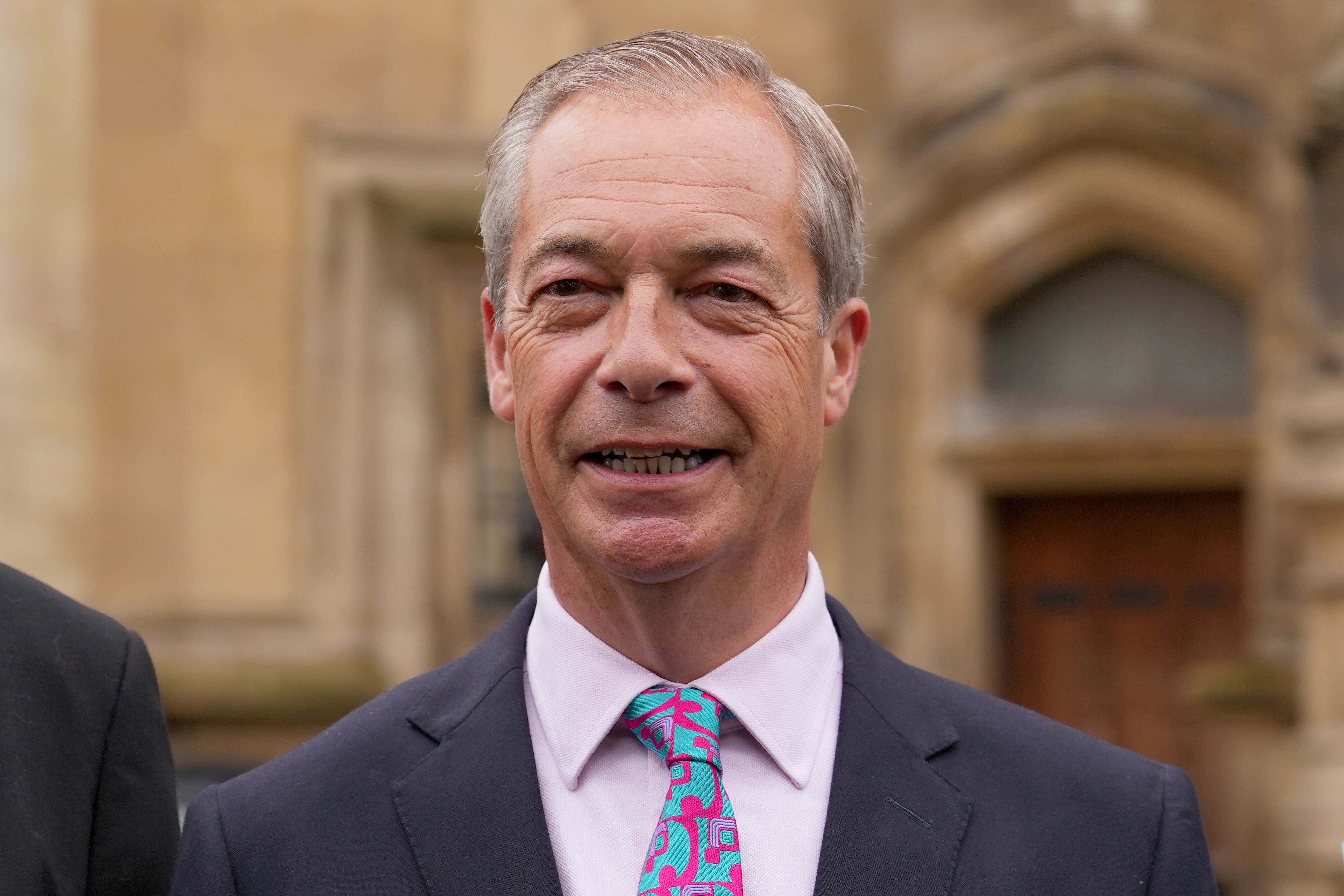Keir Starmer can’t simply ‘clamp down’ on the far right – he must also persuade them
Editorial: If it fails to engage with people’s concerns, the government risks leaving them open to being exploited by divisive figures like Nigel Farage

Speaking in a video released via his X/Twitter account, Nigel Farage made the ominous declaration that “what you’ve seen on the streets of Hartlepool, of London, of Southport, is nothing to what could happen over the course of the next few weeks”.
It is more threat than warning, more incitement than cautionary advice. Perhaps Mr Farage believes that the UK, which so recently voted a classically progressive social democratic government into power, is now in some sort of pre-revolutionary phase, and out of such chaos he will be able to place himself at the head of this chaotic movement.
Or it may just be a matter of trying to recruit an informal street army as part of a wider attempt to build on his political base. At any rate, the man derided as “Tommy Robinson in a cravat” is allying himself with some of the most dangerous elements in society, and riding a tiger that he could never hope to control, even if he wished to.
As the dapper and (relatively) respectable face of the far right, and now with a platform in parliament, he is in fact much more of a threat to democracy than Mr Robinson, who is somewhat curtailed in his troublemaking by having had to leave the country to evade another arrest warrant.
It is well understood now that toxic misinformation about the Southport tragedy has its roots in Russia, and was amplified by some who command vast numbers of followers on social media, all benevolently tolerated on X by Elon Musk. When Mr Farage suggested the other day that the authorities were malignly withholding the truth about various recent knife attacks from the public, he was feeding the most pernicious of conspiracies.
It is no use appealing to the better nature of any of these figures, however. It is what they do. The prime minister is right to demand more social responsibility from the tech companies, just as he is right to want the full force of the law to be used to keep the peace and protect the police and, at the moment, Muslim people from harm.
Yet “getting tough” on the protesters will never be enough, not least because they so often see themselves as victims or valiantly protecting others.
Sir Keir Starmer seems shy of criticising Mr Farage directly, while the leader of the opposition – and until recently prime minister – Rishi Sunak, is absent from the scene. James Cleverly, shadow home secretary, has criticised the tech giants but not engaged in substantive arguments with the far right and Reform UK (with which too many Conservatives would like to merge).
If such arguments about race, migration and policing are lost by default, then no amount of teargas and mounted officers will stop this wave of unrest. The facts have to be repeated with the same frequency and fervour as the propaganda.
The suspect in the Southport massacre wasn’t a Muslim migrant straight off a boat from Syria (though, even if he was, it wouldn’t justify a riot). The force does not and did not practise “two-tier” policing in Harehills, Whitehall, or anywhere else. It is not “patriotic” to throw bricks at the police, attack a mosque, or loot a mini-mart. There is nothing “British” about punching an asylum seeker in the street.
People born in the UK are British, whether their antecedents are or not. Areas with high levels of migration are not more crime-ridden. Islamophobia is irrational and senseless because Muslims are simply people who want to get on in life and make a living the same as anyone else. Immigration makes economies stronger, and if we “close our borders” we will swiftly close our farms, hotels and care homes.
These are simple truths, plain facts and logical arguments – yet mainstream politicians seem unwilling to voice them. It is true that people indulging in some recreational rioting and those genuinely overcome with emotion about what happened in Southport may not be in the mood to listen. But that doesn’t mean they cannot listen – and many of them, outside the travelling professional mob, do not think of themselves as “far right”.
They deserve to have their grievances addressed and reality presented to them. As is so often the case in politics, it is hard work to win the argument, especially against a sly customer such as Mr Farage. But there’s no alternative to it.
The prime minister and the other responsible people in public life need to do more than “clamp down” on thugs and mobilise face-recognition technology. They need to persuade.






Join our commenting forum
Join thought-provoking conversations, follow other Independent readers and see their replies
Comments